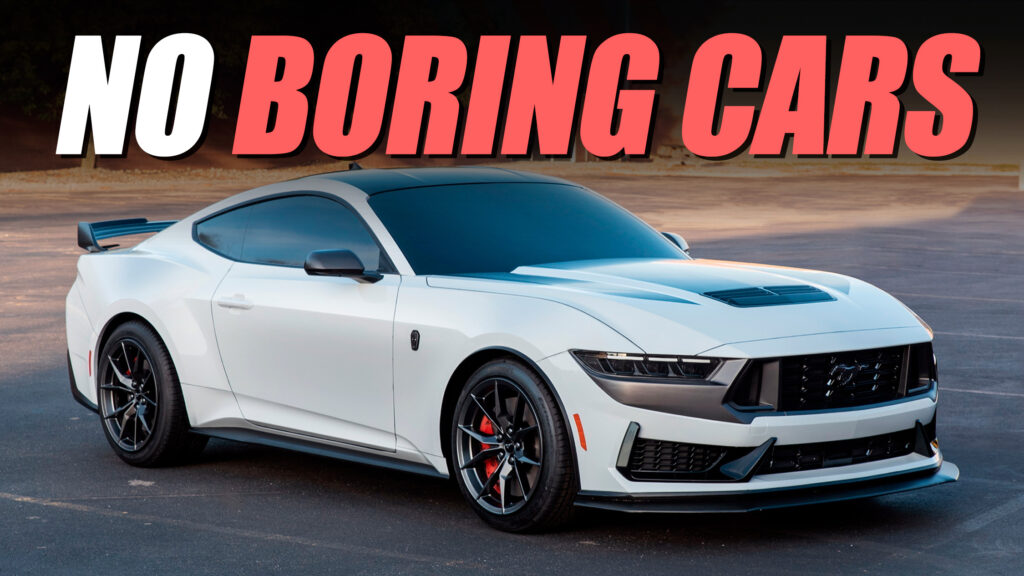- Ford’s focus on enthusiast products suggests the Focus, Fiesta, and Mondeo will not be revived.
- Jim Farley’s leadership emphasizes the importance of motorsport in Ford’s future strategy.
- Vehicles like the Mustang, Raptor, and Bronco are the future of the brand.
Some years ago, Akio Toyoda said Toyota would stop selling the “boring” cars it had become synonymous with and thanks to the launch of several compelling new vehicles, it’s done just that. Ford chief executive Jim Farley wants to do the same.
Farley recently visited Europe to launch the all-electric Explorer and believes the brand can replicate the success of its ‘Raptor’ models with future passenger cars, allowing it to ditch some of its more mundane models.
Read: Ford CEO Hints At RHD Bronco For Europe And Australia
“We’re getting out of the boring-car business and into the iconic-vehicle business,” Farley told Car Magazine in a recent interview. “We’d always competed at the heart of the passenger-car market, which didn’t work out too well for Mondeo, Focus and Fiesta. They were loved by a lot of customers but they could never justify more capital allocation – unlike commercial vehicles.”
The car manufacturer is moving away from offering vehicles that cater to all consumers and is moving slightly upmarket with more “carefully targeted vehicles.”
“We’re naturally good at fast Fords and Broncos and authentic off-roaders,” Farley added. “Ford’s brand perception was the same around the world: we were a ubiquitous company. But we had these little areas of brightness: we have heritage centers around the world filled with these [great] vehicles, but they were never mainstream. Take Raptor: it came from desert racing in Mexico and we made it global and mainstream. The Raptor story is a great example of where I think our passenger cars should go.”
With Farley at the helm, Ford has re-focused on enthusiast products, like the Mustang, Raptor and Bronco. The carmaker is also spending millions on motorsport, will become a Formula 1 engine supplier, and recently returned to Le Mans with the Mustang.

“Ford never funded enthusiast products – they were always a side business. Now with Mustang, Raptor and Bronco, they’re our business,” he noted.
Farley has also been tasked with working out the best path to electrification for the brand. He acknowledges that Tesla and the Chinese automakers are its main competitors in the EV business and needs to decide if future vehicle platforms are pure-electric or offer support for different propulsion systems.
Working out the best strategy for global markets won’t be easy. Even in the US, customer demands vary significantly between states. For example, Farley said 85% of F-150 sales in California are for the hybrid or electric variants, while in Texas, 85% of F-150 sales are combustion models.




